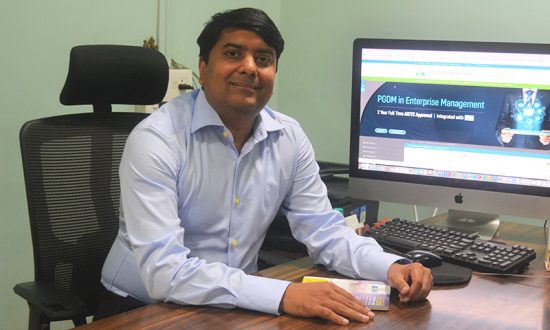Multi-faceted and driven by the desire to transform education in India, particularly management education, is the best way to define Dr Sandeep Pachpande. Chairman and Managing Trustee of Audyogik Shikshan Mandal (ASM), one of India’s premier education groups providing quality education from KG to PhD, Dr Sandeep is frequently invited by universities, industry, and associations from around the world to deliver the keynote address, chair sessions and to share his vision on education. He holds B.E. in Computer Science from D.Y. Patil College of Engineering, Pune, and MBA in International Marketing from the Leeds Metropolitan University in the UK. A lifelong learner, immediately after earning his PhD, Sandeep underwent the Senior Executive Leadership Program of Harvard Business School in 2017 and is currently pursuing the Kellogg Executive Scholars Program at Kellogg School of Management.
The National Education Policy (NEP) is the most discussed topic among academicians and educationist alike. While the intent of the NEP is very good, implementation is the key and it will all depend on how well the plan is executed in the grassroots level of our educational infrastructure. Not every student is the same as the other and educational institutes should be able to cater to a wide array of students by offering them a unique platform to identify and develop their natural abilities. With a successful implementation of the policy on schools, the higher education patterns and curriculum will witness a change from an academic as well as the administrative point of view.
Implementing changes in the basic schooling structure, assessing students will have a more candid outcome. Students of the future will have a better aptitude for reasoning making them more passion oriented. Assessment of a student’s competencies in a phased manner will form a logical framework for decision making creating more socially competent and aware students. This will help them maintain the personal academic life balance whilst imparting skillsets along with traditional and human values increasing the employability factor.
Much different from today, students will demand courses in relevant cutting edge skills. Extensive use of technology and a common admission test will give everyone an equal chance in accessing higher education. Graduations and Post Graduations in traditional careers will include technological skills like BlockChain, AI, Cloud Computing etc. Academic bank of credit will go a long way in providing a favourable environment to students to plan their education. The freedom from succumbing to societal pressures will let students choose a relevant career path from a wider array of options.
The NEP will break boundaries between curriculums bringing multidisciplinary studies together crucial for new generation jobs. In present times professionals have technical as well as management skills because the line between both sets keeps on blurring. Skill development will be primarily focused on technical, business and Soft Skills. A holistic approach with all three will make a student successful. Through a multidisciplinary approach, courses will see a surge in innovation, critical thinking and problem solving and research abilities of students that will enhance higher education to a great extent. This in turn will prove valuable across diversified work environments.
A change in the mindset of all stakeholders in education i.e. academicians, owners of institutes and Regulatory Bodies will be crucial. The absence of extensive online pedagogy will increase adoption of digitisation. The focus will have to shift on employability and quality rather than just traditional disbursal of knowledge. Higher education institutes will have to relook at their curriculum and overall academic outfit. With new stakeholders in the future rebooting the education system will be very crucial to make it student-friendly whilst maintaining the economic margins.
We have to prepare the next generation for lifelong learning. As far as executive education goes, that will always be a continuous process. Reskilling, upskilling and new skilling will be continuously expected students and employees alike. The institutes will be repositories of learning. The new and growing focus will circle research-oriented pupil and courses. India has been an excellent centre of knowledge dissemination but will now become a chief centre of knowledge creation. Practical and social-based research will be key in closing the gap with western universities.
Reset, Reboot and Reimagine the Education System. Rightfully implementing the policy will change the socio-economic structure of the nation forever.




